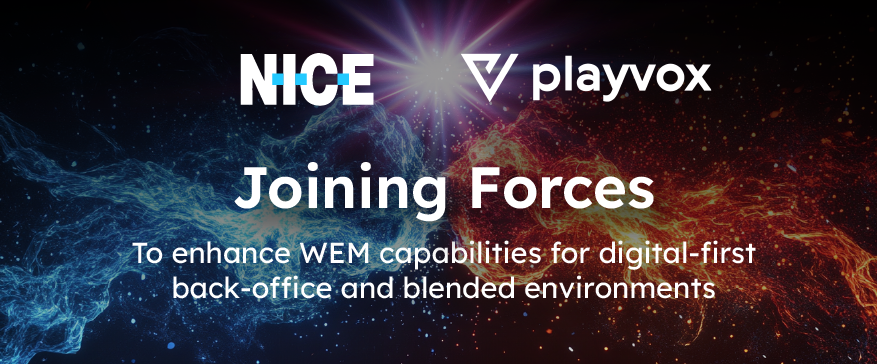Navigating the Challenges of Remote Work in Contact Centers
In recent years, the contact center industry has undergone a significant transformation, with remote work becoming increasingly prevalent. A recent Gallup survey found that 8 in 10 people are currently working remotely or in hybrid environments. While this shift offers numerous benefits, including greater flexibility and access to a wider talent pool, it also presents challenges that must be addressed.
Let’s explore some of the common challenges of remote work in contact centers and the strategies for navigating them effectively.
The Productivity Problem
With distributed and hybrid work arrangements here to stay, maintaining high levels of contact center productivity is a greater challenge. Contact center leaders are likely to find it difficult to effectively track productivity and performance. Managers must commit to providing the tools that enable connection, collaboration, and productivity. Remote agents need to feel connected to their team, the organization, and their mission in order to maintain optimal productivity and high levels of customer service. Having access to the right technology platforms allows employees to communicate easily and operate effectively across all channels from anywhere. A disconnected workforce without resources or tools to bridge the gaps is at risk of poor performance and customer dissatisfaction.
Solution: Up Your Access to Technology
To address productivity issues in contact centers with remote teams, provide strong leadership as well as the digital tools and technology that enable employees to meet and exceed their service goals. Access to round-the-clock technical support for these solutions is crucial for agents working from home. Quick resolution of technical issues means less downtime and higher service quality.

Isolation Issues
Effective communication and collaboration are essential for success in remote work settings, as agents working from home may feel isolated from their colleagues and disconnected from the broader team, impacting morale and productivity. Research reveals almost 60% of those who work from home don’t receive important information that is delivered in person.
Solution: Tune into Communication and Collaboration Tools
A study by Buffer found that 20.5% of remote employees said keeping up with communication and collaboration was their biggest struggle. To reduce communication gaps and boost collaboration, several strategies can be applied. Using communication tools such as video conferencing, instant messaging, and collaboration platforms facilitates real-time interaction and helps bridge the gap between remote agents. Additionally, scheduling regular team meetings and virtual social events fosters a sense of community and helps to keep everyone connected. Implementing mentorship programs also increases employee engagement and improves overall collaboration among remote agents as the support and guidance helps them feel more integrated into the team. Using solutions that allow remote peer-to-peer collaboration is a great way to connect teams.
Workforce Development Delays
Insufficient training is one of the main reasons for the notably high attrition rate among call center employees. According to Deloitte, 63% of contact center leaders are facing staffing shortages and must work to become more creative and proactive when it comes to finding, hiring, and retaining agents. The virtual work environment can make it even more challenging to provide effective training and development opportunities for off-site agents, as traditional classroom-style sessions may not be feasible. Additionally, agents in remote environments often struggle to access the same level of support and guidance as their in-office counterparts.
Related article: Top Reasons for Call Center Turnover and How to Reduce It
Solution: Lean into Online Learning
To overcome these challenges, contact centers should invest in e-learning resources and virtual training platforms that allow remote agents to develop their skills and knowledge from any location. Additionally, managers who provide regular employee feedback and coaching sessions with the goal of agent career advancement, will be able to keep remote agents engaged and motivated. Encouraging peer-to-peer learning through collaborative projects and knowledge-sharing sessions can also enhance the training and development experience, ensuring that remote teams receive comprehensive and continuous support.
Related article: The Power of Recognition in the Workplace
Coaching Challenges
When agents are working from another location, supervisors may find it harder to provide opportunities for coaching and mentoring. Finding new ways to connect on a regular basis is needed to keep agents engaged and to develop and prepare them for advancement and new responsibilities.
Solution: Keep in Contact and Create Accountability
To effectively coach employees when you are not in the same location, it is important to implement coaching and performance management systems that allow for remote access to KPIs and evaluation of agent performance. Regular check-ins, informal conversations, performance reviews, and goal-setting sessions are also essential to ensure accountability and drive performance. Having a solution that automatically assigns coaching based on KPIs also helps drive more efficiency. Tracking improvement after coaching als helps identify any areas of opportunity in communicating feedback. Additionally, using transparent metrics and dashboards provides visibility into performance, enabling both agents and managers to track progress and make necessary adjustments.
Blurred Boundaries
Maintaining a healthy work-life balance can be difficult for remote agents, as they may find it hard to separate their work and personal time when doing both from home. The lack of social interaction can also be detrimental. One study revealed that a third of remote workers stay home too often because they don’t have a reason to leave. And the same study found that 23% of remote workers cited loneliness as a struggle.
Solution: Add Flexibility and Wellness Options
To promote a better work/life balance, it is important to offer flexible schedules that allow agents to manage their workload alongside personal responsibilities. Implementing wellness programs that support physical and mental health, such as virtual fitness classes or meditation sessions, can also be beneficial and help to create a stronger company culture. Additionally, encouraging remote agents to establish clear boundaries between work and personal life — such as creating a dedicated workspace and setting specific work hours — can help them maintain a healthier work-life balance.
Related article: Flexible Work Arrangements: The Future of Contact Centers
Locking in Success with an Engaged and Productive Remote Workforce
While a remote work arrangement presents numerous benefits for contact centers, it also brings unique challenges. By addressing potential issues related to productivity, communication and collaboration, training and development, coaching, accountability, and work-life balance, contact center leaders can create a supportive and productive remote work environment for their agents and staff.
As the remote work model continues to evolve, a proactive approach will ultimately drive success and satisfaction in the digital age, ensuring that both agents and customers have a positive experience. Employing key strategies to support all employees regardless of location will enable contact centers to stay ahead of the curve.
While enhancing the agent experience in your company may seem challenging and costly, prioritizing team empowerment and fostering collaboration make it possible to harness the full potential of a remote workforce. Building a stronger company culture and achieving your goals starts with thoughtful, proactive, and supportive strategies for your entire team. Now and during times of change, you will discover that you can significantly improve how your agents experience their day-to-day jobs. This improvement will, in turn, elevate the quality of your customer service.
Watch our free webinar to create a more empowered and collaborative work environment for your agents.







